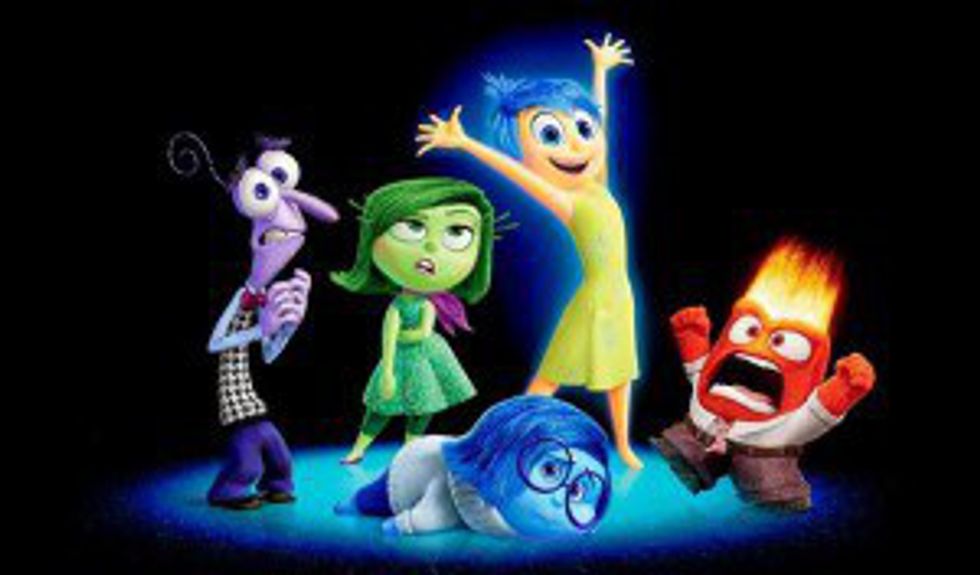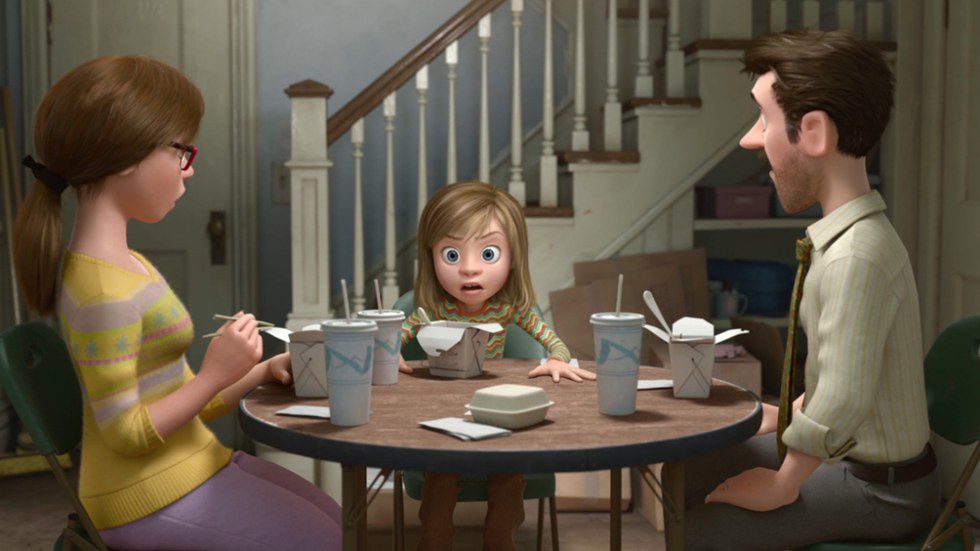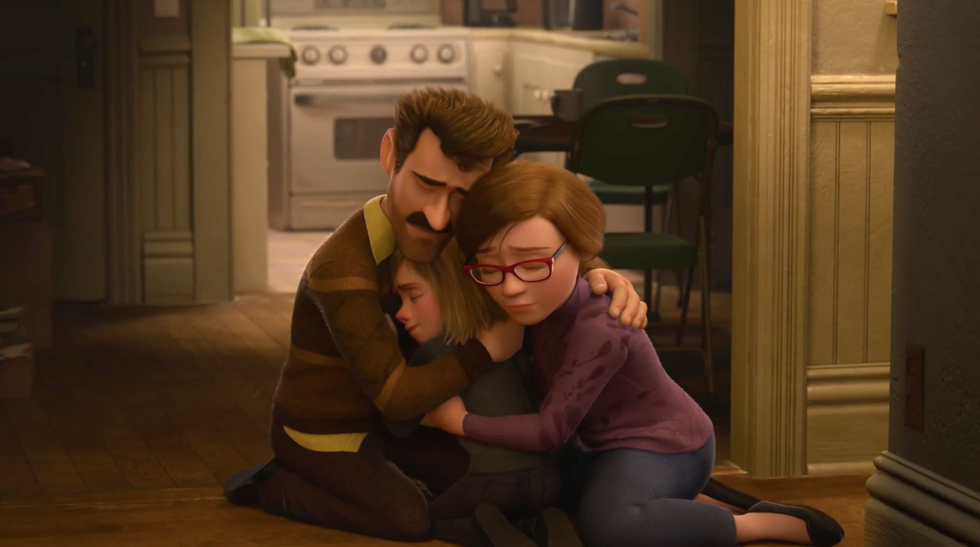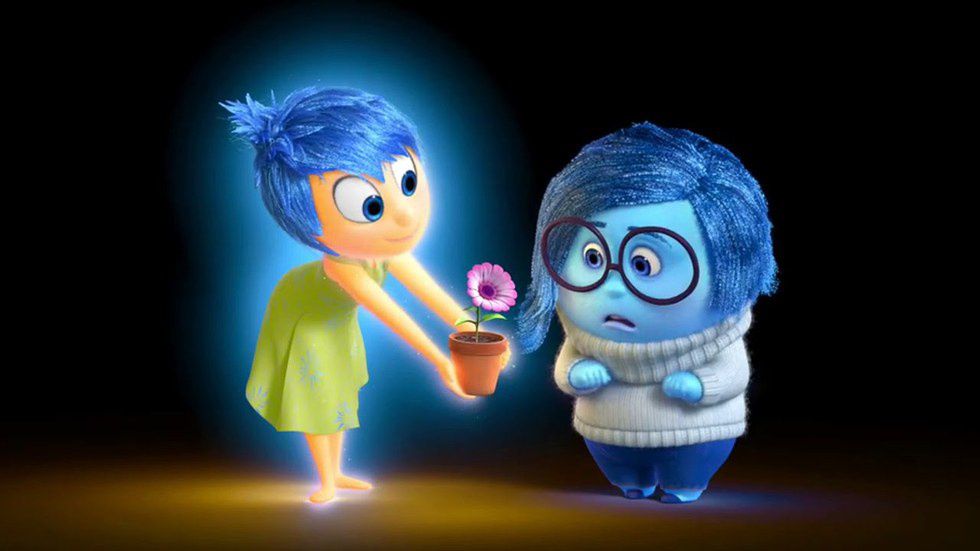Warning: Some "Inside Out" spoilers ahead.
Being positive is a good thing, of course. It means you’re making the most out of situations and not being affected by those proverbially insignificant, petty things that otherwise ruin your day (i.e. the Internet being down so you can’t watch Netflix, or something of that nature. Though, I guess, depending on who you are, that could be a monumental disaster). And who doesn’t want to be happy? After all, we’ve only got a finite time on this earth, so we might as well make the best of it. So, of course, being positive is a good thing. But is being positive all the time bad for you? It seems that Pixar and I share the belief that the answer is no
.
"Inside Out" was released in theaters this past June and was immediately heralded not only as a return to form for Pixar, but also as an excellent insight into mental health. The film follows 11-year-old Riley and her emotions: Joy, Sadness, Anger, Fear and Disgust. Riley is uprooted from her Minnesota home to move to San Francisco, and her emotions struggle to help her adjust. Joy acts as the de-facto leader of the group, trying her best to keep Riley happy and to prevent Sadness from making her, well, sad. And therein lies the main conflict of the film, Joy gets so caught up in trying to prevent Riley from being sad that she ends up making things worse (Riley loses her “core” memories and runs away from home, becoming depressed and vacant).
It’s a given to say that at some point you are going to be faced with a situation that makes you feel negatively: a bad relationship, stress over school or work, a car accident, a pet dying, the list goes on. Often you’d be told to make the best out of bad situations, and that is correct. It’s always great to find the silver lining. But in my experience, I see people often assume that means that they shouldn’t be sad or upset at these situations. I had a breakup. But that’s OK, because now I can be more independent. As opposed to, I had a breakup, and it upsets me. But now I can be more independent. It might not seem like that big a change, but the mentality is completely different.
The resolution of "Inside Out" comes in the form of Joy accepting Sadness’ role as one of Riley’s most important emotions. Sadness is who makes Riley return home after running away. Sadness is who allows Riley to open up and admit to her parents that she misses her old home. Her parents show understanding and empathy for her turmoil, and they bond over missing Minnesota. It’s a very vulnerable moment, and it’s rare to see such an intimate encounter (even among families) depicted on the big screen.
We live in a society that looks down on negative emotions and ignores poor mental health, for the most part. This is a changing part of our culture, but there are still stigma that exist. There’s this constant public mentality of “leave your problems at the door,” which can lead to pent-up emotions. The assumption is that you will deal with these problems in private, but often, this mistakenly translates into being told that you shouldn’t feel negatively about situations, or rather that you shouldn’t let them affect you. Had a fight with your best friend? The world doesn’t really care, it only cares about your contribution to the overall mechanism of society. I don’t mean to sound so dramatic, but it’s a harsh truth.
How do we shake off this stigma? Well, we talk. Like Riley, who eventually confides in her parents, so too must we find someone whom we trust to talk to. But the important part of this is that talking should go hand in hand with admitting to yourself how you feel about a situation. Talking is no good if you’re just going to deny how you really feel. Allowing yourself to admit and process your emotions is essential in reaching some sort of resolution.
Riley eventually creates new “core” memories, and instead of focusing on a singular emotion they fuse together; Riley’s confession of missing home is both a sad memory and a happy one: she admits that she is sad that she misses her old home, but is happy because it strengthened her bond with her parents. So, I suppose, the takeaway is this — it’s OK to be sad. After all, the lower the lows, the higher the highs.





















